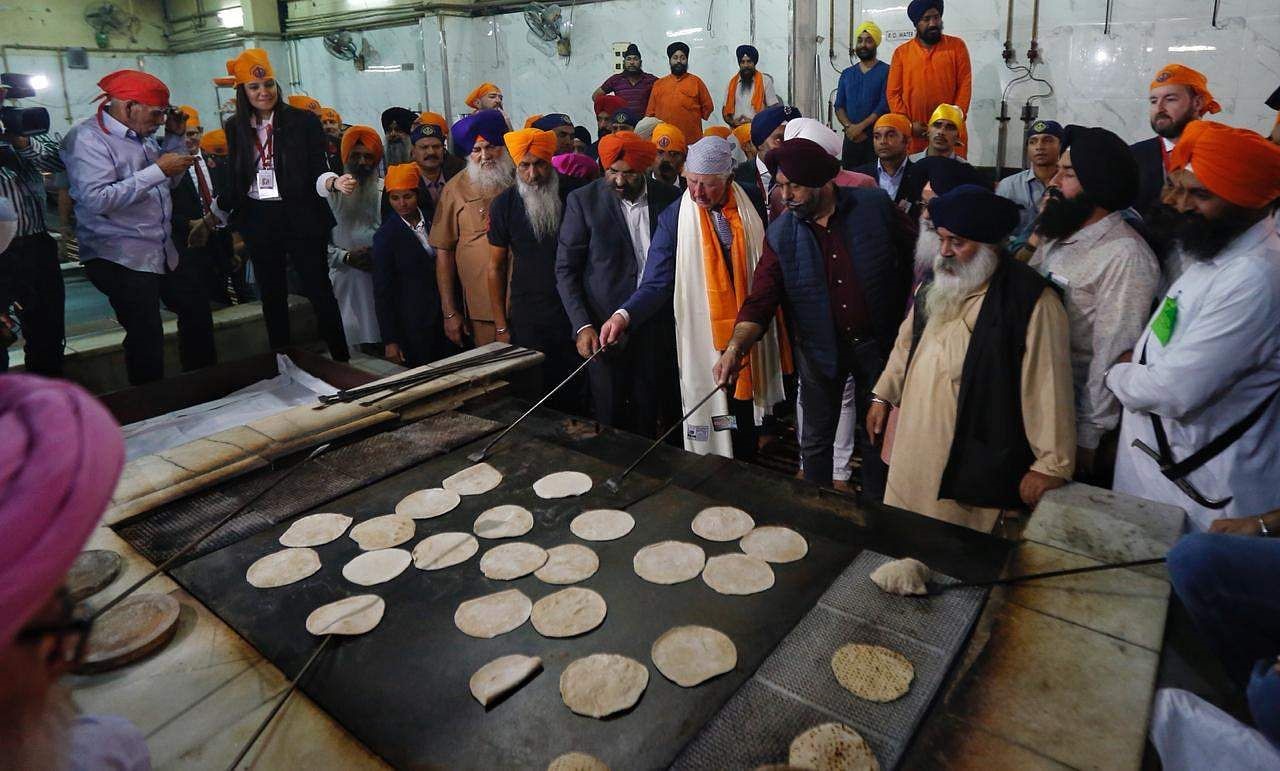Sewa is extremely significant in the Sikh community. The top Sewas are cleansing the used cutlery in Langar and the Sangat’s footwear in the Gurdwara. Cleaning the Gurdwara, such as the facilities, preparing and serving Langar, and cleaning the Gurdwara grounds are all common Sewas. Serving humans and animals with pure, safe drinking water is indeed an important task in India. A Chhabeel is a type of water-dispensing station. While repeating the Name of God, the groups perform selfless service.
Volunteering services are offered in organizations and places that serve orphaned, handicapped, and sick people. First aid is given, the destitute and needy are assisted, and medicines are given out. Clothing and blankets are distributed for free, and free food kiosks are set up.
Others provide free educational or religious instruction. People or organizations benefit from the services of surgeons, experts, general practitioners, engineers, builders, and others. Anyone is free to do anything they choose. There’s no way to stop it. Sewa is an integral aspect of the Sikh way of life.
You might come to encounter a container labelled “Sewa.” It’s a trash can, and it’s a ‘Service.’ Single-use plastic has largely eliminated or put the good deeds of washing utensils to the background, particularly in international countries. Nonetheless, it is quite useful. It can be transformed into a different type of Sewa.
Why one should do Sewa?
Sewa is significant because it reflects one’s sense of fairness and the value of all individuals. Sikhs demonstrate humility by helping others. This is because helping others demonstrates that Sikhs do not consider they are superior to others. Supporting others demonstrates admiration and affection for Waheguru. It aids Sikhs in their quest to be much more Gurmukh. Because it aids in the development of qualities such as honesty and true living, empathy and patience, serenity, modesty and self-control, love, intelligence and bravery, and wisdom and fortitude.
Personal generosity can be demeaning to the recipient and ego-nourishing to the donor, but selfless community service could be uplifting. Seva should be performed in such a way that it dissolves the ego and leads to self-transcendence, or the ability to recognize and respond to something other than oneself. Seva must be used to describe how such transcendence reveals itself in an isolated way in one’s attentiveness to the concerns of others.
Who is Sewadar?
A sewadar is someone who serves the Guru (Gurdwara) in some way. A Sewadar should be respectful, courteous, and sweet. He or she must be an expert in his or her field, always eager to learn, educate, and share what they’ve learned. He or she must be ego-free in terms of what they know, do, and could do. Sewadar is a Gurmukh a God-centered person – who serves as a good example for the soy’s spiritual development.
While doing sewa at the Holy place, please remember that you never know who might be coming to the Gurdwara next! Who knows who among the Gurmukh souls has arrived today! If you’re polishing the shoes of a tiny child, keep in mind that they can pertain to one of the Sahibzaade. When washing a bibi’s shoes, keep in mind that they can be Bibi Bhani’s. When washing a Bhai Ji’s shoes, take into account that they can be Bhai Bailo’s.
How to do sewa?
There are three ways to provide Sewa: Through Tan – physical work that necessitates hard work, commitment, and power; through Mann – mental service that includes discussing, motivating, advising, teaching, directing, expressing, and even just hearing; and through Dhan – financial, materialistic, and propoffersering.
If we do not contribute in these three different ways, the notion of real Sewa is insufficient. Although it may appear difficult to follow, you could serve with whatever assets you have.
You need to be wealthy to offer sewa there literally are thousands of ways to help people and offer sewa just do good deeds and it is ultimately a sewa.
“Sikhs for Sewa” aims to promote the word of Sikhism around the world by knowing the values of Sikhism, which is service, or “Sewa.” The Guru (Guru Granth Sahib) encourages all Sikhs to undertake Seva or selfless service. This is beneficial not just to communal relations but also to the individual’s morale. Sikhs might be found washing the dishes, sweeping floors, serving food, and doing other tasks in Gurdwaras for free.
Sikhs are also urged to volunteer in hospitals, nursing homes, commucentersntres, and other non-profit organizations. Sevadars are volunteers who participate in Seva, and for many individuals, this practice is a vital part of their lives, offering spiritual fulfillment.
Seva is an integral component of this way of life. In seva, a person works for the benefit of other for a common good without anticipating any monetary compensation. The remuneration is the work itself. This thrill is known to those who volunteer.








